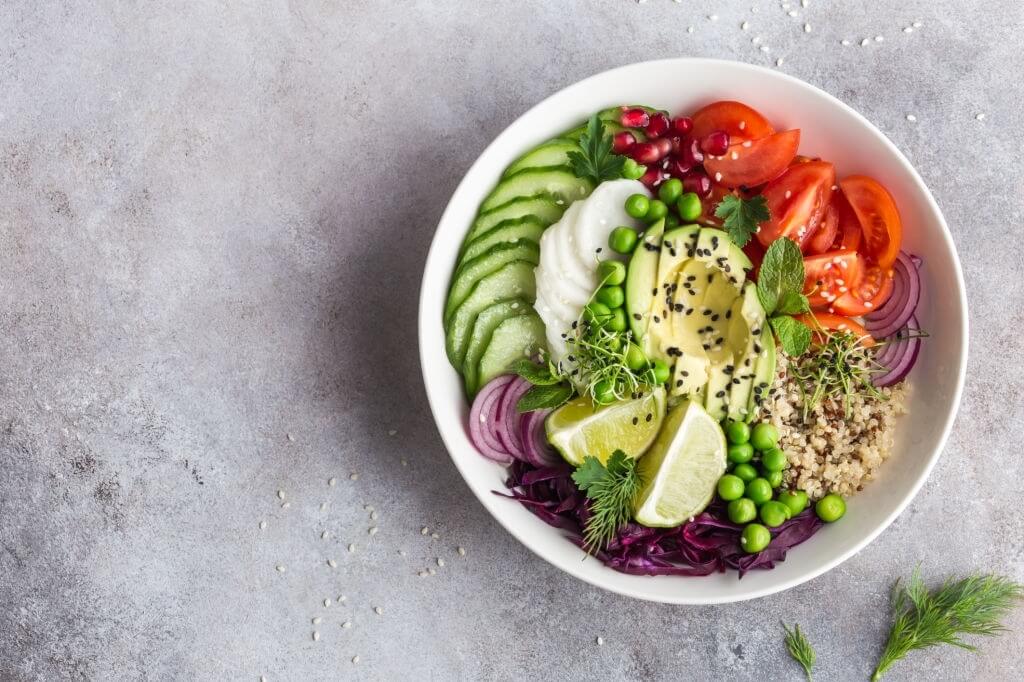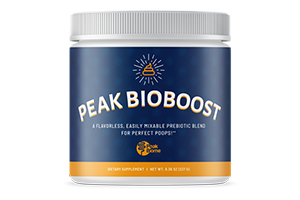Nothing could be healthier than a plate of leafy salad with some vegetables and a nice topping on it. Salads are a great way to fulfill your daily nutrient requirements. It has tons of benefits for your health, plus it helps keep your digestion in check.
But does salad make you poop? Can salad make you gassy and bloated?
The answer to both of the questions is yes. Salad is not just the green vegetable you see; it also has topping and other things that can make it gassy for you. The fiber content in the salad is linked with improved digestion and easy poop. In some cases eating salad can also make things wrong with your stomach, causing loose stool or diarrhea.
This article will discuss everything about salad and its relation to your gut.
Related Article: Do Almonds Make You Poop?

Does salad help you poop?
Salad has a huge potential in making your gut run again. Salad with other vegetables is a powerhouse of fiber. When consumed regularly, it can help your gut get enough fiber that makes it easy for you to poop. Along with fiber, the salad also has water which makes it even more beneficial in mild constipation.
Vegetable and leafy greens are a good source of dietary fiber. There could be two types of fiber that help your gut- soluble and insoluble fiber.
Oats, beans, avocados, pear, or apples are good examples of foods containing soluble fiber. These fibers are beneficial for good gut bacteria and help them grow. The study suggests that soluble fiber effectively treats certain gut disorders such as irritable bowel syndrome (IBS).
On the other hand, insoluble fiber can be found in beans, potatoes, lentils, peas, most fruits, and nuts. These fibers add bulk to the stool, making it easy to pass through the colon.
A salad has lots of fiber, making it a must to include in your diet to relieve constipation.
Why does salad make you poop?
The salad contains a good amount of fiber, making your digestion better and adding bulk to your stool. Apart from fiber content, ingredients used in salad also impact its effectiveness in helping you poop. Below are some common salad ingredients which help your stomach feel lighter and relieve you from the discomforts of constipation.
Beans
Beans are great to partner in your salad. It has plenty of fiber content in them. In every serving of half a cup, beans contain 7.5 grams of fiber. It contributes a major part towards the daily fiber requirement, i.e., 25-30 grams every day. Beans contain both soluble and insoluble fiber, making them a perfect companion for your gut.
Olive oil
Olive oil used in salad dressing or as part of a dip is beneficial in making your intestine active. Olive oil acts as a natural laxative, and it helps in constipation by improving bowel movements. Olive oil shows mild laxative properties. When combined with a fiber-rich diet like salad, it could make a real difference in your constipation. You can use olive oil in salad as a topping or try cooking veggies in olive oil before using it in a salad.
Honey
Many people love to make their salad a little sweeter. Honey for that purpose is widely used. It is a perfect dressing for your salad. Honey contains good enzymes which help in digestion. It is also a mild laxative, which can help in moving things quicker in the digestive tract.
Related Article: Does Honey Help With Constipation?
Vinegar
Vinegar is a very common ingredient in food preparation and salad dressings. Vinegar helps support digestion. It inhibits the enzymes that help in starch digestion, leaving enough starch for good bacteria to feed and grow. This helps gut bacteria in better breakdown of food in the intestine and thus more frequent bowel movements.
Broccoli
Broccoli contains sulforaphane, which helps maintain a healthy balance of good gut bacteria and promotes their growth. Broccoli in your salad is a healthy treat for your gut.
Leafy greens
A salad full of vegetables, spinach, and leafy greens is the simplest solution for all your gastrointestinal problems. They contain insoluble fiber, vitamins, and other nutrients, making them effective in conditions like irritable bowel syndrome (IBS).
Does salad make you gassy?
From helping you poop to supplying your body with nutrients, salad has many good things about them. But with all these pros there are some cons too. Eating salad sometimes may cause bloating and a gassy stomach. There could be three possible reasons why salad causes you gas. Let’s discuss them one by one.
1. The dressing
While you enjoy your plate of green leafy salad, we all forget about its dressing. Salad dressing may have ingredients that are making your gut unhappy. It might be the oil, salt, or sugar in your salad that is responsible for your bloated stomach. Try to prepare your salad with all green veggies. Avoid too many dressings; this might help in preventing any digestive discomforts such as gas or bloating.
2. Too much raw veggies
Eating too many veggies at once could be another reason you are getting a bloated belly. The salad contains a lot of fibers. While fiber is helpful in digestion, too much and a sudden increase of fiber in the gut is not a good idea.
Excess of fiber makes it very difficult for your gut to digest. If you are not used to eating a lot of fiber-rich foods, avoid eating too much salad initially. Increase the amount of salad in your diet slowly. This will prepare your stomach for digesting fiber-rich foods properly, so you will not get a gassy stomach.
3. Excess of sugar and salt in salad
We all love salad with a pinch of salt or sugar. But logically, these two could be the reason for your bloated stomach. Excess of salt and sugar in the salad can make digestion difficult. Sugar in salad encourages the growth of bad bacteria in the gut. On the other hand, when you eat too much salt, your body starts sucking water from the stool to compensate for the excess salt in your bloodstream. This can result in constipation and a bloated stomach.
Diarrhea after eating salad
Eating green vegetables is often linked with good health. But it is not always true. If the ingredients in your salad are not handled properly, it can give you diarrhea too. When bacteria and germs from the veggies reach the gut, they can do all the wrong things with our digestion.
Our immune system responds to these bacterias, which can cause loose stools. It is very important to wash the vegetables to remove any bacteria, germs, or pesticides stuck on them. These contaminations often cause serious food poisoning, so make sure to wash vegetables before adding them to your salad.
Uncooked raw vegetables sometimes result in an upset stomach. If you are among those gut-sensitive people, try to cook or steam vegetables a little before adding them to your salad. Cooking or steaming helps break some fiber of the vegetables, so it will be easier for your gut to digest it.
Conclusion
Eating salad helps you in poop. The fiber content in salad improves bowel movements and so makes it easy to pass stool. The salad also gets its effectiveness from other ingredients like beans, honey, vinegar, or olive oil. While salad boosts digestion and bowel movements, it can also cause gas, bloating, and even diarrhea if you are not used to eating a lot of fiber. To avoid such unpleasant side effects, you can cook or steam vegetables a little before adding them to the salad. This way, you break down some fibers making it easier for your gut to digest the salad.










